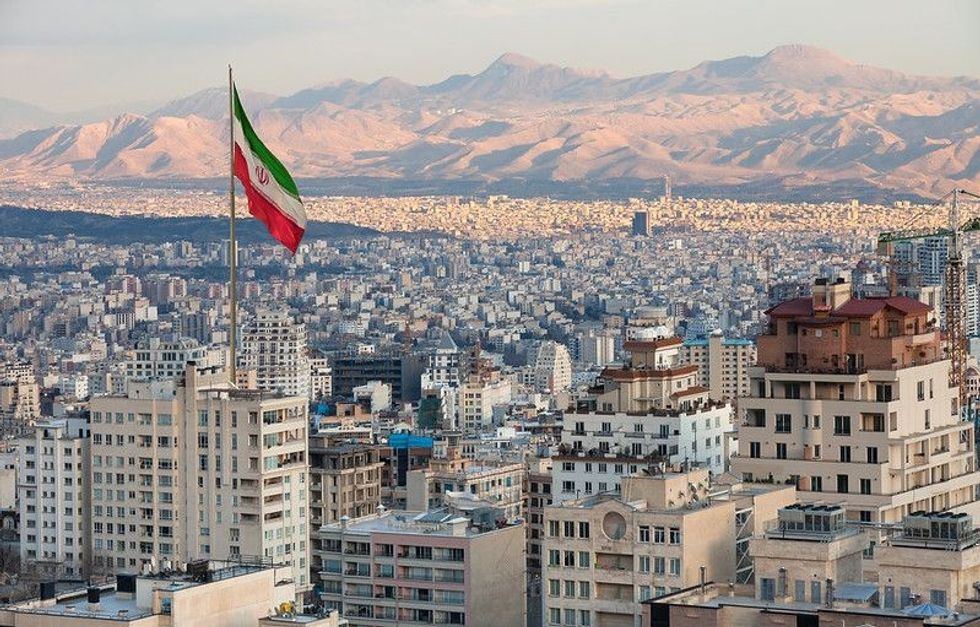Why Mesopotamian names?
Mesopotamia is one of the oldest civilizations in the world. It began in the Late Paleolithic period. Mesopotamia is a name derived from the Greek language.
It combines the terms 'mesos' and 'potamos', which mean 'between' and 'waterway'. Mesopotamia is a geographical region in Western Asia.
The region is between the river system of Tigris and Euphrates. Alluvial soil deposits from the rivers made Mesopotamian suitable for agriculture and settlements. Many kingdoms were established in this region due to access to resources.
Thus, Mesopotamian history involves the rise and decline of several empires. The Mesopotamian civilization might have been established during the third millennium BC. Archeologists and researchers have interpreted the names of several deities, kings and queens, and influential people of ancient Mesopotamia.
This article provides a collection of several Mesopotamian names. You will learn about several male and female deities worshipped in Mesopotamia.
You will learn the names of kings, queens, and their children who ruled different parts of the region. You can also check out the list of suitable modern names suggested at the end. The names are a reference to particular Mesopotamian features.
Mesopotamian Names For Girls

1. Anat - a goddess of hunting and warfare, known in Upper Mesopotamian kingdoms, with Hammurabi becoming a deity patron.
2. Aya - a goddess of Akkadian origin, associated with the dawn and known as a wife of Utu.
3. Bau - was considered a goddess who heals and gives life, regarded as a divine mother goddess in Lagash.
4. Beltum - a princess as the daughter of Ishi-Addu, the king of Qatna, an ancient Syrian city.
5. Enheduanna - the daughter of Sargon of Akkad. She was a priestess of the moon god, Nannar.
6. Gula - a Mesopotamian goddess of medicine.
7. Innana - a Mesopotamian goddess associated with war, fertility, and love.
8. Irnina - the goddess of victory.
9. Ki - a Sumerian goddess of the earth
10. Kubaba - the only queen who became a ruler of the Sumerian kingdom.
11. Lammašaga - a Mesopotamian goddess considered a divine vizier of the goddess Bau.
12. Nammu - an important Sumerian mother goddess, is regarded as the god Enki's mother.
13. Nanshe - a goddess associated with marshlands, seas, and animals.
14. Nikkal - also known as Ningal, was a Sumerian goddess regarded as the wife of the moon god, Nannar.
15. Ninalla - the name of the wife of Gudea, whose father was the king of Lagash.
16. Ninegal - also called Belat Ekalli was a deity of palaces.
17. Ninhursag - a Sumerian mother goddess related to mountains and referred to as a goddess of fertility.
18. Ninimma - was a goddess of the arts of writing scribes.
19. Ninkarrak - was considered a goddess of medicine, specifically in Syria and northern Mesopotamia.
20. Ninkasi - was the Mesopotamian goddess of beer and brewing.
21. Ninlil - a goddess and wife of Enlil, having functions similar to her husband.
22. Nin-Nibru - a goddess and wife of Ninurta. She was absorbed by another goddess, Gula.
23. Ninsun - a Mesopotamian goddess regarded as the wife of Lugalbanda and mother of Gilgamesh.
24. Nintinugga - was a goddess of cleansing and medicine.
25. Nisaba - a god of writing and grain and one of the oldest deities of Sumer.
26. Šala - also called Shala, was a goddess of weather and grain.
27. Sarpānītu - a goddess of birth and considered the wife of the god Marduk.
28. Šerua - a goddess and wife of the main Assyrian god, Ashur.
29. Shibtu - a princess of Yamkhad. She became the queen of Mari as the wife of Zimri-Lim.
30. Sud - was a Mesopotamian goddess regarded as the guardian of the Sumerian city of Šuruppak.
31. Tashlultum - the wife of the first Akkadian king Sargon.
32. Tiamat - a Babylonian goddess who gave birth to the first generation of gods.
Mesopotamian Names For Boys

33. Adasi - became an Assyrian king by usurping the throne from Aššūr-dugul.
34. An - also referred to as Anu or Anum, was considered the king of all gods in the Mesopotamian religion.
35. Apiashal - the 17th king of Assyria.
36. Ashurbanipal - regarded as the last great king of Assyria who ruled from 669-631 BCE.
37. Asinum - became a king of Assyria during the 18th century BC as the grandson of Shamshi-Adad I.
38. Aššūr-dugul - the 44th Assyrian king of the 18th century BC, ruled for six years.
39. Bel-bani - succeeded Adasi as the king of Assyria, ruling from 1700-1691 BC.
40. Bunene - a deity known as the divine vizier and charioteer of the Mesopotamian sun god Utu.
41. Dakiya - the son of Damiq-ilišu, who became a high official in Samsu-iluna’s kingdom.
42. Damiq-ilišu - was the last ruler of the Dynasty of Isin in Mesopotamia.
43. Dumuzid - a god of the shepherds and primary consort of goddess Inanna.
44. Enkidu - a mythological figure of Mesopotamia who was a friend and comrade of Gilgamesh.
45. Enlil - a Mesopotamian god who controlled winds, storms, earth, and air.
46. Erishuml - a king of the city-state of Assur as the successor of Narām-Sîn of Eshunna.
47. Gilgamesh - a hero from Mesopotamian mythology, characterized as the king of Uruk.
48. Gudea - was a south Mesopotamian king of Lagash.
49. Hammurabi - was a king of the Babylonian empire, ruling almost all of Mesopotamia.
50. Illa-Kabkabu - was the name of at least two kings in ancient Mesopotamia.
51. Ishi-Addu - was the king of the region of Qatna during the early 18th century BC.
52. Ishme-Dagan I - a king of Ekallatum in Upper Mesopotamia.
53. Iškur - also known as Hadad or Adad, was regarded as the god of rains and storms by the kingdoms in Mesopotamia.
54. Lugalbanda - was a legendary king of Uruk who was regarded as a god and is known as the father of Gilgamesh.
55. Marduk - an important Mesopotamian deity in Babylon, consider a god of creation, agriculture, and water.
56. Mut-Ashkur - the successor of Ishme-Dagan I as the king of Ekallatum.
57. Nannar - also called Nanna or Suen, was a Mesopotamian moon god.
58. Narām-Suen - was the 37th king of Assyria.
59. Ninĝirsu - also known as Ninurta, was a god associated with war, farming, law, hunting, and healing.
60. Puzur-Suen - also known as Puzur-Sin, put an end to the dynasty established by Shamshi-Adad I to begin his kingdom in Assyria.
61. Rim-sin - the name of several rulers of Larsa in ancient Sumer.
62. Samsu-iluna - the son and successor of Hammurabi, became the seventh Amorite king of Babylonia.
63. Sargon - the name of the first ruler of an empire in recorded human history. He was also the first ruler of the Akkad Empire in Mesopotamia.
64. Shamshi-Adad I - a warlord who conquered most of Syria, Anatolia, and Upper Mesopotamia, became the first Amorite to rule Assyria.
65. Shulgi - succeeded Ur-Nammu as the ruler of the kingdom of Ur and reigned for 48 years.
66. Sîn-māgir - the 14th king of the Dynasty of Isin.
67. Sin-Muballit - the fifth Amorite king of the First Dynasty of Babylonia.
68. Ur-Nammu - a king from southern Mesopotamia and founder of the Third Sumerian Dynasty of Ur.
69. Ushpia - the 16th king of Assyria.
70. Utu/Shamash - the name of the Mesopotamian sun god.
71. Utu-hengal - the father of Ur-Nammu, who became a native king of Sumer after defeating the Gutians.
72. Yasmah-Adad - son of Shamshi-Adad I, who ruled the region of Mari in Upper Mesopotamia.
73. Zababa - a god of war and protection considered a guardian of the city of Kish.
74. Zimri-Lim - became a king of Mari and ruled for 13 years.
Names Inspired By Mesopotamia
75. Adiabene - a kingdom in northwestern Assyria.
76. Akitu - a traditional spring festival celebrated in ancient Mesopotamia.
77. Amia - a feminine name derived from the last letters of Mesopotamia.
78. Asyr - a gender-neutral name based on the land of Assyria, part of the geographical region of Mesopotamia.
79. Azag - the masculine name refers to the son of the sky and earth deities of Mesopotamia named Anu and Ki, respectively.
80. Bucha - a masculine name derived from Nebuchadrazzer, one of the kings of the last Babylonian dynasty.
81. Crescent - a unique feminine name referring to the crescent shape of the geographical area of ancient Mesopotamia.
82. Diyala - a tributary of the Tigris river in Mesopotamia, can be a suitable gender-neutral name.
83. Eridu - a unique gender-neutral name based on the oldest city in Sumer.
84. Gueno - an unconventional name for a boy, referring to the 5000-year-old Mesopotamian statue of the Guennol Lioness.
85. Hamrin - a robust masculine name based on the name of a mountain range in lower Mesopotamia, presently Iraq.
86. Jazira - a feminine name referring to the Arabic name given to the regions of Upper Mesopotamia, al-Jazira.
87. Kassi - a feminine name based on the Kassite group that established the second or middle Babylonian dynasty in Mesopotamia.
88. Larsa - a catchy feminine name based on the name of a city in ancient Sumer.
89. Mashoof - a catchy masculine name referring to the narrow canoes used to cross the Mesopotamian marshlands.
90. Naharayim - Hebrew for 'between two rivers', can be a feminine name referring to the location of the geographical position of Mesopotamia.
91. Ninevh - a unique feminine name based on the famous city in Assyria Nineveh.
92. Nisan - a masculine name that referred to the first month of spring in the ancient Babylonian calendar.
93. Samarra - a feminine name based on the archeological culture prevalent in upper Mesopotamian regions between 5500-4800 BC.
94. Seleucus - the name of an exceptional astronomer and philosopher from ancient Mesopotamia. Give this name to a kid interested in science.
95. Sumer - can be a catchy Arabic name for a boy based on the ancient Mesopotamian city of Sumer.
96. Tigris - a feminine name referring to one of the main rivers flowing across Mesopotamia.
97. Umma - an ancient city of Sumer that can be used as a feminine name.
98. Uruk - a masculine name referring to the Sumerian city of Uruk, located in southeastern Iraq.
99. Zab - a river in northern Mesopotamia. It can also be a great gender-neutral name.
100.Zagros - can be an excellent name for boys, referring to the Zagros Mountains of Mesopotamia, which includes parts of present-day Iran and Turkey.
You Might Also Like
Top 70 Babylonian Names For Your Baby
21 Mesopotamia Government Facts: Learn All About Their Rulers
13 Ancient Mesopotamia Facts That Will Absolutely Astonish You!










